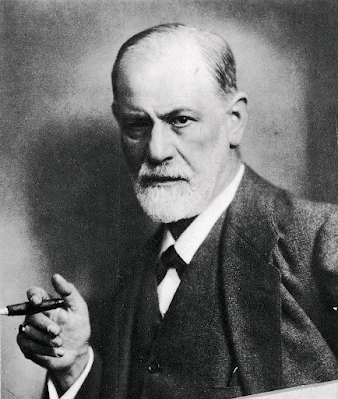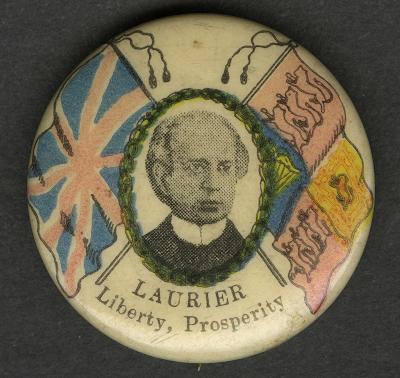Stephen Roney's Blog, page 16
March 20, 2025
The Most Unkindest Cut
 Immortal dead white man
Immortal dead white man
News is that the Shakespeare’s Birthplace Trust is planning to “de-colonize” Stratford. Apparently “the idea of Shakespeare's 'universal' genius 'benefits the ideology of white European supremacy'.” The Trust must “stop saying Shakespeare was the 'greatest' but part of a community of 'equal and different' writers globally.” Some exhibits will, for example, celebrate Rabindranath Tagore.
Questioned on how Shakespeare promoted “white European supremacy,” one authority issued this challenge: everyone around the world knows Shakespeare. But how many African writers could you name?
There you are. To suggest that Shakespeare is some unique genius promotes white supremacy. Obviously there must have been equally great writers in Africa.
By this logic, however, surely celebrating Shakespeare promotes Stratford supremacy as well. In fairness, they should celebrate as of equal merit some writer from every shire in England.
And let’s explore this rabbit hole further. How many Irish writers can you name? Several, I’ll warrant. Ireland, current population 6 million, has won four Nobel Prizes for Literature. And Joyce didn’t get one. Yet Ireland has been colonized by England far longer than any place in Africa. Britain held Kenya for 60 years. Britain held Ireland for 700 years. And with a deliberate attempt to wipe out Irish education and throw the Irish off the land.
Demonstrably, if Shakespeare outshines all African writers, it is not because of colonialism. And it is not because Shakespeare has been artificially promoted for nationalistic or propagandistic reasons. These Irish writers certainly weren’t.
Shakespeare indeed objectively suggests the superiority of English culture; at least when it comes to authoring plays. At least when it comes to crafting language.
Different cultures indeed have different specialties. You can’t beat Russians in the novel. You can’t beat Italy for cuisine. You can’t beat France for painting. You can’t beat America for sports.
Different cultures are better and worse at different things; and, given that a culture is a system for living the best possible life, it is also reasonable to argue that one culture is overall superior to another.
After all, whether it was right or wrong to do, what made it possible for a relatively small island off the coast of Europe to, at one point, control one quarter of the world’s population and one quarter of the world’s resources?
Malice?
The claim is ridiculous.
The ideal, of course, is to take the best from each culture, and combine them to create the best possible culture. This is what immigrant nations like the US, Canada, Australia, or Singapore have been able to do: the melting pot. To a lesser extent, this is what trading nations like England, the Netherlands, or ancient Greece, have been able to do. And these have generally become the most successful cultures as a result.
This is what we must return to. This involves, in the first place, celebrating merit.
'Od's Blog: Catholic comments on the passing parade.
March 19, 2025
Kindness and Honesty

A poet of Iranian ancestry writes:
“Instead of searching for the truth,
be kind to others.
There’s no truth beyond that.”
This seems to me to reflect a difference I have noticed between East and West. In America, Canada, or England, if you want to say someone is a good man, you say “he is honest.” But in China, if you want to identify someone as good, you say “he is kind.”
I think this is a telling difference in values. The West values truth above social harmony; the Far East values social harmony, keeping everyone happy, “kindness.” Perhaps Iran is more like the Far East.
I find another example in a Confucian story. It is meant to illustrate the essence of good morals. The righteous emperor heard an ox chosen for the annual sacrifice bellowing with fear on the way to slaughter. So he intervened and insisted that this ox be replaced by another. This demonstrated his impeccable morals.
But to me as a Westerner, it looks only like sentimentality. After all, the next ox would still be slaughtered, and would quite likely be just as afraid. The emperor just didn’t have to hear about it.
As a Westerner, I would almost reverse those lines:
“Instead of trying to make others happy,
Seek and speak the truth.
There’s no kindness without that.”
I wonder if this comes specifically from Christianity.
'Od's Blog: Catholic comments on the passing parade.
March 18, 2025
On Poetry as Self-Expression
 Nobody
NobodyWhy is poetry less popular than it used to be? Until the 1960s, poetry outsold prose in Canadian Literature. Newspapers used to feature a daily poem. Prose was hardly considered worth publishing until about the early 18th century.
There are no doubt several reasons. One is our devaluation of memory and memorization. One is that poets no longer seem to understand poetry’s musical character. They have abandoned rhythm, rhyme, assonance; and somehow think this is clever. One is that, since television and now the internet, we are more visually and less aurally oriented than we were. So we do not appreciate the sounds of words so much.
But one is surely the influence of Freud.
Almost everyone has gotten the idea that a poem is a matter of self-expression. That it must be confessional, autobiographical, and in the first person.
I once submitted a poem to a competition that had complex rhyme, including internal rhyme, and rhythm--and a story line.
And it was actually rejected outright, not allowed in the contest, “because it was a story, not a poem.”
Imagine how little interest there would be in prose, or in film, or in YouTube videos, if they were all about self-expression.
If it is self-expression, there is no particular reason why it should be of interest to an audience. Unless perhaps your personal experience is somehow sensational, or gruesome, or rarely expressed. It is then just therapy for the poet.
And that is what has happened. Nobody comes to a poetry reading any longer to listen to poetry. There is always an open mic. They come to read their own poems. They have to listen to others as well, out of politeness.
In fact, true poetry is the exact opposite of self-expression. John Keats wrote that the “chameleon poet” is “the most unpoetical thing in existence.” Through “negative capability” he takes on whatever comes to him. There is no self left.
Leonard Cohen described himself as simply an antenna for poetry. Irving Layton referred to his poems as “my dead selves.” WB Yeats said, “you can either live the life of a poet, or write poetry. You cannot do both.”
I think they are all saying the same thing. In poetry the self must disappear.
And most modern would-be poets are doing the opposite.
'Od's Blog: Catholic comments on the passing parade.
March 17, 2025
Superstitions

Friend Xerxes, in his latest column, conflates, or at least doesnot clearly distinguish, superstition, ritual, and placebo. Superstition =ritual = placebo = sympathetic magic.
Not so. These are all different issues.
Rituals are not superstitions. A wedding, for example, orthe coronation of a king, is not superstition. Rituals have a practical purposethat is often easy to understand. One does not normally get married out ofsuperstition.
A placebo is not superstition. Doctors do not prescribeplacebos because they are superstitious, and the patient does not need to besuperstitious in order for it to work. Placebos serve a known practicalpurpose. And, if some superstition has a placebo effect, it is notsuperstition.
And as for what superstition actually is—I guess that is alreadyimplicit. We call actions that serve no known or understood practical purpose “superstitions.”Perhaps we say “good luck” or “bad luck”; but isn’t that just saying, “unspecifiedor unknown benefits”?
Of course, the conflation of ritual with superstition isintrinsically anti-Catholic. In his column, Xerxes expressly cites the Catholicsacramental of holy water, and the sacrament of communion, as superstitions.
They obviously are not for Catholics. Catholics understandthem as producing specific benefits. They are not done for “good luck.” To callthem superstitions is to say that you do not believe in Catholicism.
Once when a fellow instructor was scoffing at the Koreantradition of pung su chi ri—feng shui—as superstition, I asked her to definewhat she meant by the term “superstition.” She said “beliefs not supported byscience.” Xerxes suggests something similar with his concluding statement: “Evenin a supposedly scientific age, we remain creatures of myth and wonder.”
But this is not an adequate definition. Well before empiricalscience, philosophers condemned superstition; as do the Buddhist scriptures. Oneexample: it was a superstitious Irish practice to avoid biting on the host; onehad to let it dissolve in the mouth. Biting was wounding Jesus.
This was superstition, like stepping on a crack to breakyour mother’s back: it innocently violated correct Catholic theology.
In other words, “superstition” is whatever violates youraccepted world view. If your religion is “scientism,” then things that cannotbe explained scientifically are superstitious. If it is Buddhism, then thingsthat do not fit the Buddhist dharma are superstitious.
Just in passing, having studied pung si chi ri, it makesgood sense to me. It is “unscientific” because it attends to our emotionalnature in planning our surroundings, and science is incapable of taking emotioninto account. But the true value of feng shui or pung su is immediatelyapparent on entering a Korean coffee shop, a Japanese garden, or a Chinese restaurant.
In sum, “superstition” is a term we use to describe somepractice for which we cannot see the justification, based on our world view,our religion.
This being so, it is judicious to honour superstitions, allelse being equal.
I will not pass under a ladder if I can avoid it. I alsowill not write anybody’s name in red ink, a practice I learned in Korea. I willnot stick my chopsticks upright. I will knock on wood.
It is arrogant to assume any given “superstition” is wrong.I am reminded of Chesterton’s advice. One must never take down a fence merelybecause you do not know why it is there. To be justified in taking down afence, you had better first know exactly why it is there.
Friend Xerxes, in his latest column, conflates, or at least doesnot clearly distinguish, superstition, ritual, and placebo. Superstition =ritual = placebo = sympathetic magic.
Not so. These are all different issues.
Rituals are not superstitions. A wedding, for example, orthe coronation of a king, is not superstition. Rituals have a practical purposethat is often easy to understand. One does not normally get married out ofsuperstition.
A placebo is not superstition. Doctors do not prescribeplacebos because they are superstitious, and the patient does not need to besuperstitious in order for it to work. Placebos serve a known practicalpurpose. And, if some superstition has a placebo effect, it is notsuperstition.
And as for what superstition actually is—I guess that is alreadyimplicit. We call actions that serve no known or understood practical purpose “superstitions.”Perhaps we say “good luck” or “bad luck”; but isn’t that just saying, “unspecifiedor unknown benefits”?
Of course, the conflation of ritual with superstition isintrinsically anti-Catholic. In his column, Xerxes expressly cites the Catholicsacramental of holy water, and the sacrament of communion, as superstitions.
They obviously are not for Catholics. Catholics understandthem as producing specific benefits. They are not done for “good luck.” To callthem superstitions is to say that you do not believe in Catholicism.
Once when a fellow instructor was scoffing at the Koreantradition of pung su chi ri—feng shui—as superstition, I asked her to definewhat she meant by the term “superstition.” She said “beliefs not supported byscience.” Xerxes suggests something similar with his concluding statement: “Evenin a supposedly scientific age, we remain creatures of myth and wonder.”
But this is not an adequate definition. Well before empiricalscience, philosophers condemned superstition; as do the Buddhist scriptures. Oneexample: it was a superstitious Irish practice to avoid biting on the host; onehad to let it dissolve in the mouth. Biting was wounding Jesus.
This was superstition, like stepping on a crack to breakyour mother’s back: it innocently violated correct Catholic theology.
In other words, “superstition” is whatever violates youraccepted world view. If your religion is “scientism,” then things that cannotbe explained scientifically are superstitious. If it is Buddhism, then thingsthat do not fit the Buddhist dharma are superstitious.
Just in passing, having studied pung si chi ri, it makesgood sense to me. It is “unscientific” because it attends to our emotionalnature in planning our surroundings, and science is incapable of taking emotioninto account. But the true value of feng shui or pung su is immediatelyapparent on entering a Korean coffee shop, a Japanese garden, or a Chinese restaurant.
In sum, “superstition” is a term we use to describe somepractice for which we cannot see the justification, based on our world view,our religion.
This being so, it is judicious to honour superstitions, allelse being equal.
I will not pass under a ladder if I can avoid it. I alsowill not write anybody’s name in red ink, a practice I learned in Korea. I willnot stick my chopsticks upright. I will knock on wood.
It is arrogant to assume any given “superstition” is wrong.I am reminded of Chesterton’s advice. One must never take down a fence merelybecause you do not know why it is there. To be justified in taking down afence, you had better first know exactly why it is there.
Friend Xerxes, in his latest column, conflates, or at least does not clearly distinguish, superstition, ritual, and placebo. Superstition = ritual = placebo = sympathetic magic.
Not so. These are all different issues.
Rituals are not superstitions. A wedding, for example, or the coronation of a king, is not superstition. Rituals have a practical purpose that is often easy to understand. One does not normally get married out of superstition.
A placebo is not superstition. Doctors do not prescribe placebos because they are superstitious, and the patient does not need to be superstitious in order for it to work. Placebos serve a known practical purpose. And, if some superstition has a placebo effect, it is not superstition.
And as for what superstition actually is—I guess that is already implicit. We call actions that serve no known or understood practical purpose “superstitions.” Perhaps we say “good luck” or “bad luck”; but isn’t that just saying, “unspecified or unknown benefits”?
Of course, the conflation of ritual with superstition is intrinsically anti-Catholic. In his column, Xerxes expressly cites the Catholic sacramental of holy water, and the sacrament of communion, as superstitions.
They obviously are not for Catholics. Catholics understand them as producing specific benefits. They are not done for “good luck.” To call them superstitions is to say that you do not believe in Catholicism.
Once when a fellow instructor was scoffing at the Korean tradition of pung su chi ri—feng shui—as superstition, I asked her to define what she meant by the term “superstition.” She said “beliefs not supported by science.” Xerxes suggests something similar with his concluding statement: “Even in a supposedly scientific age, we remain creatures of myth and wonder.”
But this is not an adequate definition. Well before empirical science, philosophers condemned superstition; as do the Buddhist scriptures. One example: it was a superstitious Irish practice to avoid biting on the host; one had to let it dissolve in the mouth. Biting was wounding Jesus.
This was superstition, like stepping on a crack to break your mother’s back: it innocently violated correct Catholic theology.
In other words, “superstition” is whatever violates your accepted world view. If your religion is “scientism,” then things that cannot be explained scientifically are superstitious. If it is Buddhism, then things that do not fit the Buddhist dharma are superstitious.
Just in passing, having studied pung si chi ri, it makes good sense to me. It is “unscientific” because it attends to our emotional nature in planning our surroundings, and science is incapable of taking emotion into account. But the true value of feng shui or pung su is immediately apparent on entering a Korean coffee shop, a Japanese garden, or a Chinese restaurant.
In sum, “superstition” is a term we use to describe some practice for which we cannot see the justification, based on our world view, our religion.
This being so, it is judicious to honour superstitions, all else being equal.
I will not pass under a ladder if I can avoid it. I also will not write anybody’s name in red ink, a practice I learned in Korea. I will not stick my chopsticks upright. I will knock on wood.
It is arrogant to assume any given “superstition” is wrong. I am reminded of Chesterton’s advice. One must never take down a fence merely because you do not know why it is there. To be justified in taking down a fence, you had better first know exactly why it is there.
'Od's Blog: Catholic comments on the passing parade.
March 16, 2025
The Subconscious
 Freud shows us his imaginary phallus
Freud shows us his imaginary phallusI have lost two of my best friends to psychiatry.
The first, whom I had known since first year university, through think and thin, unfriended me emphatically in insult and anger when I questioned psychotherapy. To be clear, these were the words which he apparently found unforgivable:
“You believe you have been helped by psychotherapy. I admit that this is possible. Some people were helped by joining Jim Jones’s People’s Temple, too. But overall… not such a good idea. This may be an extreme example, but it makes the point. And I am not sure it is extreme, actually.”
My being concerned with his welfare was not held in my favour.
Another friend, whom I had cherished and admired for a good thirty years, unfriended me and declared me immoral for scoffing at Maslow and existentialist psychiatry. My argument was that they claimed depression was caused by a sense of meaninglessness, and then affirmed that there was indeed no meaning in life. So going to an existentialist therapist could not be helpful.
I cannot imagine any religious person having a similar reaction over a similar criticism of religion. Certainly not cutting off such longstanding friendships. Among the religious, it is the reverse: they are eager to discuss the issue. They will even knock on the doors of strangers in hopes of doing so.
So I must conclude that the average person who believes in psychiatry holds to his faith more fervently than if it were a religion.
This does not speak well of psychiatry, given that it claims to be scientific. It is obviously something else. Not religion; more like a cult.
As a general principle, if one believes one has the better argument, one enjoys an argument. If one suspects one’s beliefs are untenable, one will refuse to discuss them. Especially if there is something personal at stake.
I think this “true believer” phenomenon is a symptom of the incoherence of materialism. It is our dominant world view: we believe in “science.” But scientific materialism fails to account for the larger portion of human experience. If one is not a total zombie, one discovers this. And then what? Then depression or mental illness occurs: one is out of step with what “everyone knows” is true. At best, one is alienated. At worst, one concludes one is incurably insane. One is experiencing impossible things, things that do not exist.
Psychiatry rushes in as the attempt to reconcile one’s experience with materialism. And partly as Inquisition, rooting out heresies by declaring insanity.
People then cling in desperation to their chosen psychology, because from their perspective, if they doubt the therapist, they go mad.
In objective terms, however, it is the psychiatry that is making and keeping them mad.
My first friend accepted that Freud, the founder of psychiatry, was mostly wrong. Of course; he has, after all, been disproven in detail in scientific terms. However, Freud must still be honoured as the man who discovered the subconscious. The subconscious explains everything.
But the subconscious, or Jung’s similar “unconscious,” is actually nonsensical. It is a self that is not ourself, a will that is our will yet not our will, a consciousness of which we are not conscious.
These are all contradictions in terms.
The obvious truth is that these strange messages or intimations or urges or images are not coming from us. Indeed, they are not by definition. There is a spiritual world. And it is no more a part of us than is the physical world.
'Od's Blog: Catholic comments on the passing parade.
March 15, 2025
Maple DOGE
 Actual unretouched photograph courtesy of Craiyon
Actual unretouched photograph courtesy of CraiyonI think Trump’s DOGE is a powerful idea that would make a great campaign issue for Pierre Poilievre if he has the nerve to grab it. Of course, the Liberals would respond by pointing out that Poilievre is “taking a page from the Trump playbook.” And Trump is far from a popular figure in Canada.Poilievre would have to be ready to wear this.
I think he must. He is going to have to wear this anyway. No matter what he does or says, because he is ideologically aligned with Trump, the Liberals will say this. The smart thing to do is to walk right into it. Be a leader, not a follower; attack, don’t defend. Explain why this idea of Trump’s is a good idea, and should be done here.
The Liberals cannot co-opt this issue, as they have done with the carbon tax, because the bureaucracy is their base. It also works well against Carney, because Carney is the ultimate bureaucrat. Suddenly his supposed expertise, which looks good for confronting Trump, works against him. He is a swamp creature. And for the common taxpayer, it has to be a winner. Week by week, new revelations about ridiculous spending. And with them the hope of lower taxes, without a reduction in services.
Introducing an attention-grabbing proposal like this could take the focus off the Trump tariffs, which are a losing issue for the Conservatives. And it could remedy the problem of looking dull and squishy in light of Trump’s dramatic actions next door.
Kevin O’Leary seems to me the best outsider to enlist to manage the inquisition; he seems ready and eager for some such role. He has a talent for publicity, a public reputation for financial probity, and experience as an entrepreneur and venture capitalist. Below him, he should have the smarts to hire some guys who previously worked with Musk on DOGE. If this sounds too flashy for Canadian tastes, Stephen Harper might be up for the role. He is at least a trained economist, and the finances looked much more sound under his tenure.
'Od's Blog: Catholic comments on the passing parade.
March 14, 2025
Sunny Ways

Pierre Poilievre is caught in the Erin O’Toole trap. He has taken roughly the same position on the Trump tariffs as the Liberal government. If this remains the dominant issue in an election, he has given the Canadian public no reason to vote for him. If the agenda is going to be hostility and retaliation, the Liberals are more convincing; since Poilievre is ideologically aligned with Trump. He loses. At the same time, by agreeing with the government, he begins to look squishy, like controlled opposition; not decisive like Trump. Poilievre’s Conservatives and Farage’s Reform in Britain risk seeming unexciting by comparison.
It is bold and would take iron nerve, but what Poilievre should have done, and perhaps could still do, is to show leadership: explain the real situation to the Canadian people. We cannot win a trade war with the US. Whether we like the tariffs or not, an angry reaction is suicidal. And to be honest, Trump has a point. We have been imposing quotas and high tariffs, on, for example, eggs and dairy products. We need to announce our readiness to put these on the table. Poilievre needs to point out that the result will be beneficial for Canadians as well as our American cousins.
And he can go further: far from objecting to the offer of statehood—a rejection which is an egregious insult to the USA, when none need have been taken by Canada from the offer—we will helpfully hold a Canada-wide referendum on the issue. Trump is welcome to make his case directly to the people, and we will freely choose. Why would any patriotic Canadian not want this?
It is the Canadian tradition to be polite and to compromise; to seek friendship with all. It is a perversion of the Canadian spirit to be rude and dismissive of our closest friend and ally.
Sunny ways, my friends, sunny ways.
The Conservatives might take an immediate hit, in the current atmosphere of hysteria. But very soon, I expect the Canadian public to sober up and realize that retaliation is a disastrous tactic. Doug Ford’s debacle with his electricity surcharge shows the way.
'Od's Blog: Catholic comments on the passing parade.
March 12, 2025
East Is East, and West Is West

I was recently referred to, without malice, as “white.” Nevertheless, I resent the term.
It is dehumanizing to think of people in terms of race, as if we were animals. And nothing could be more cartoonishly superficial than to classify people by skin colour.
We must also ditch our meaningless purely geographical term “Asian,” which absurdly lumps Koreans with Dravidians with Arabs.
Whenever I go to a Catholic mass, around me are people of all the skin colours you can imagine. And this is my true community, my home. These are the people I have most in common with, and feel most comfortable with; not some random person I meet on the street who has skin the same hue as my own. Let alone some pale face in Turkey or Xinjiang. It is absurd to identify me as “European,” as well. I was not born and have not lived in Europe. I am not “white,” or “European.” I am “Canadian” and “Catholic.”
It is as if, in our scientistic frenzy, we are determined to deny the influence of religion or the existence of culture.
Rather than identifying people by skin colour, which is meaningless, or race, which is dehumanizing, we should classify people by culture. Culture is real.
There are four great cultural zones on this planet: Christendom, Dar al Islam, Hindu India, and the Confucian East. No doubt there are others, less significant, and quickly being assimilated, in Sub-Saharan Africa. And there are smaller anomalous groups like the Jews, the Parsees, the Roma, and the like. These zones are coming together and becoming more similar, with improved communications; but they still real.
They have to do with the basic premises on which the society is built, on which people interact, and on which life decisions are made. With judgements of value and of what is right and wrong.
One can further subdivide: Catholic culture is distinct from Protestant culture, and Orthodox culture is distinct from either. Sunni Islamic culture is distinct from Shia Islamic culture.
We need to be more aware of them, because there can be problems when they mix. Planes can fly into buildings. When they interact, there are no understood ground rules.
This has nothing to do with racism. This has to do with comparative religion.
'Od's Blog: Catholic comments on the passing parade.
March 11, 2025
Collateral Damage in the Trump Wars

Why are things suddenly going badly for the Poilievre Conservatives in Canada, and Farage’s Reform in the UK? The polls are dropping in Canada; in the UK, there is much dissent in the ranks.
It is the Trump effect. Trump is sucking up all the oxygen on the right. The local heroes, Farage and Poilievre, no longer seem exciting and radical by comparison. Inevitably, not being in power, Poilievre and Farage are all talk and no action. Unless they can propose policies significantly more radical-sounding than what Trump is actually doing, they begin to look like weak tea.
This is how and why revolutions devour their children. Once the movement begins, it is hard to stay in front of it. It is easy to start to look like yesterday’s man.
'Od's Blog: Catholic comments on the passing parade.
March 10, 2025
Onward to the Marxist Paradise

Seen in the wild:
“Object is to make True Marxism - Not Russian Collectivism - Nor Chinese and North Korean Communism.”
So what is this “true Marxism,” that is not anything we have yet seen?
I assume it is the Marxist utopia: everyone does what they like and gets what they want.
That is a worthy goal.
Moreover, we seem to be moving toward it.
It is broadly the result of improving technology: we get more for less work.
There is less hard manual labour than there ever was, work hours are shorter, and increasingly, we have less boring, repetitive office labour.
The question is, how to hasten this process?
By eliminating “Marxism” as a political movement.
The free market and financial incentives are best at fostering improved technology.
'Od's Blog: Catholic comments on the passing parade.



